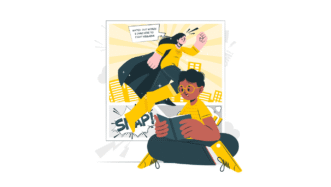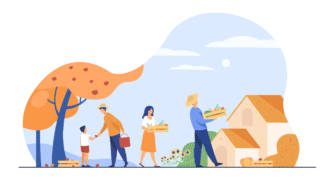LESSON OVERVIEW
This flipped lesson plan is based on a video about the most expensive coffee in the world, Kopi Luwak. Students will first learn how to use wish structures and then practise using them during the lesson. Again, this flipped lesson plan can also be done in a traditional way, that is the whole worksheet during the classes (the video is short).
This is a Flipped Classroom lesson plan. In a nutshell, it means that the first part of the lesson needs to be done by students at home. Learn more about flipped classroom and how we implement it in these lesson plans in our post.
PRE-CLASS ACTIVITIES
At home students should do three grammar activities. First of all, they need to study a short table showing different sentences with wish structures to learn how it can be used. Then, they need to read a few sentences, and find and correct mistakes in them. All these mistakes are connected with the use of wish structures. In the next task, they get a list of sentences and they need to rewrite them using wish structures to talk about the past, present and future.
IN-CLASS ACTIVITIES
The in-class worksheet starts with a short activity where students read the definition of a bucket list and write down 5 things that they would include on their own bucket lists. Next, they need to share what they have on their bucket list with each other using wish structures. After that, they move to a short discussion about coffee which is an intro to the video. Then, they need to watch the video and answer a few comprehension questions. The next video-based exercise requires students to match halves to create phrases used in the video. Next, students need to add three more wish sentences connected to the video to the list given, compare their sentences with another student. The last task is a pair work activity. In the provided boxes, students write different things in random order. For example, an activity they wish they had tried on their last holiday or a talent they wish they had. After filling in all boxes, students exchange cards with their partner and guess what the other student meant. For example:
A: I think you wish you weren’t scared of dogs.
B: Nope, I wish I had had a dog when I was a kid.
WORKSHEETS
Subscribe to unlock these and many other Standalone lesson lesson plans with the Unlimited plan
Subscribe












Thanks for this interesting lesson plan!
I think there’s a mistake in the first exercise: the expression “wish subject would” only works to express annoyance, e.g. “I wish you would stop shouting” or “I wish the government would help the homeless” so, “I wish we would go for a walk tomorrow” doesn’t work. I’d say “I wish we were going for a walk tomorrow” or “I wish we could go for a walk tomorrow.
Thanks for your comment 🙂 You’ve made us think about the issue more and we’ve just done additional research on that. You’re right that we can use “wish subject would” to express annoyance, but it seems that it’s not the only usage of it. However, as some sources indicate, it might also be awkward to use “we” or “I” and “would”, so, to maybe not cause further confusion, we’ll update the worksheets
Hi Justa,
Thanks for your reply! I don’t think my explanation was actually very clear, but I’m glad you saw what I was trying to say – that using “we” or “I” is often awkward as “would” here suggests a situation that you want to change, but have no control over.
I’m about to use this lesson for a Zoom speaking class – fingers crossed!
Kate
Good luck then and let us know how our e-lesson plan has worked with your students!
Number 5 seems strange to me, I think for this reason you’ve mentioned. To say that you wish you could do something in the bucket list context e.g. when you say in the table ‘I wish he could meet us on Friday’ this expresses that he can’t meet us on Friday but you wish he could so if I said ‘I wish I could visit Japan’ it means that I can’t do it for some reason. I think it would be better to say ‘I hope to visit Japan’.
Thanks for your comment 🙂
Sure, it depends on our point of view. For some people, the bucket list might include things they desire to do, but they can’t do for various reasons.
Hi, thanks for this lesson!
But yes, I agree with Aisling. For a bucket list, it makes more sense to use ‘hope’ as most things are possible before you die e.g I hope to travel all over the world before I die, I hope I can speak English fluently before I die.